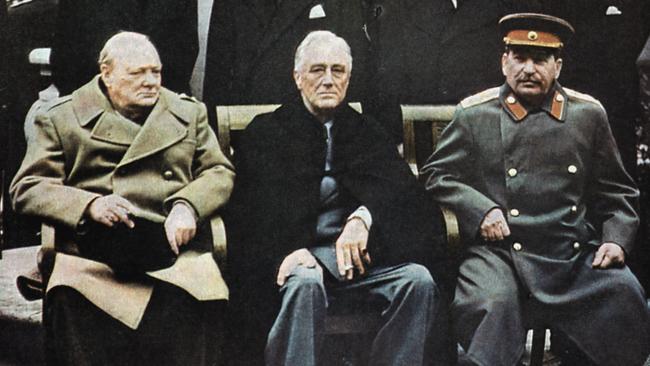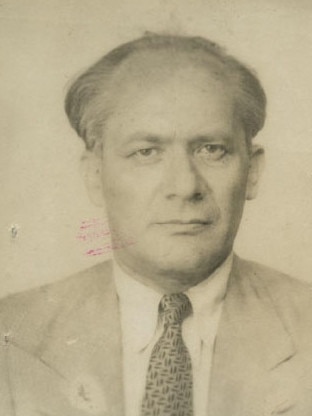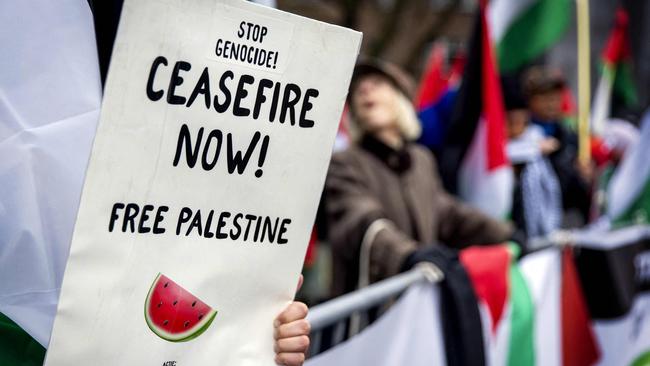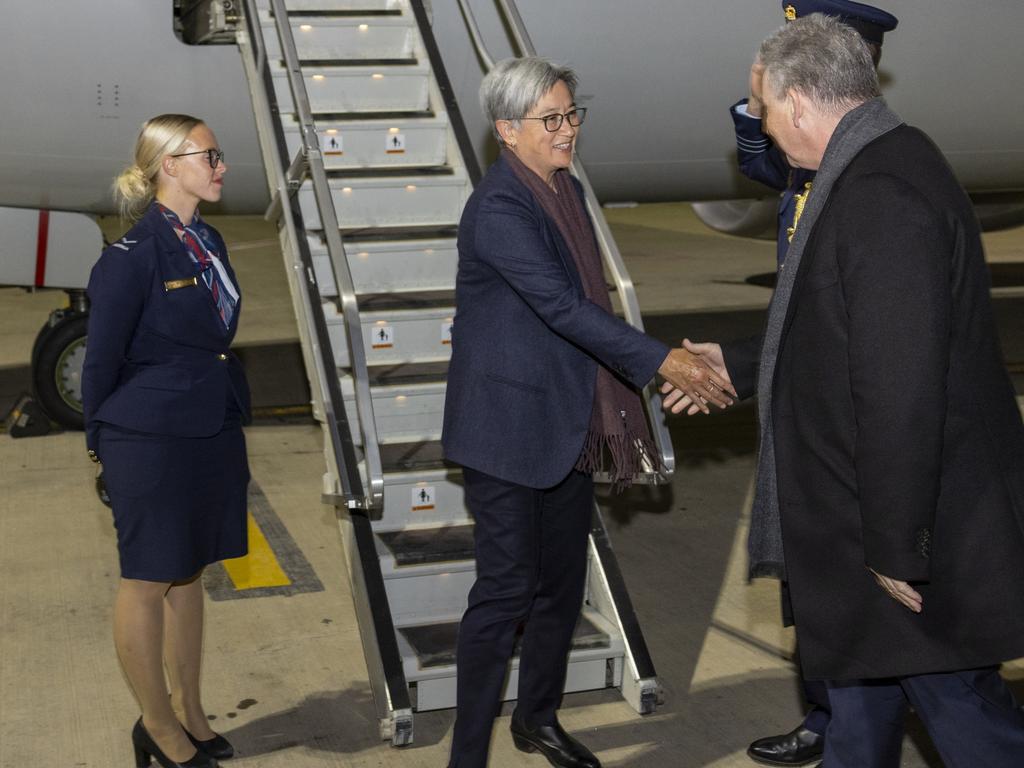
At the heart of the problems is the definition of genocide – a definition that proved troublesome from the outset.
The origins of the word itself are well known. Speaking in August 1941, Winston Churchill called the atrocities being committed by the Nazis in the western borderlands of the Soviet Union a “crime without a name”. Addressing that lacuna, Raphael Lemkin, a Polish lawyer of Jewish descent who had fled to the US, coined the term “genocide” to describe the intentional annihilation of an entire people.
The relevant chapter of Lemkin’s 1944 book, Axis Rule in Occupied Europe, was cursory, accounting for just 16 of the book’s 671 pages, and left the crime poorly defined. But what the neologism referred to was clear enough, and became even clearer as horrifying descriptions of the Holocaust emerged.
These were not crimes committed in the pursuit of military objectives; on the contrary, the killing often began, and invariably continued, once the fighting ended. At Babi Yar, and in Nazi-occupied Europe more generally, defenceless victims were rounded up, taken to the killing fields and slaughtered.

In war crimes, there was always the defence that innocent deaths were the side-effect of legitimate military action. In the Holocaust – as later in Cambodia, Rwanda, the former Yugoslavia and the slaughter of the Yazidis in Syria – any such claim would have been ludicrous, since it was precisely the absence of an opposing force that made the scale of the massacres possible. The contemporary equivalent would be if Israel detained the inhabitants of those parts of Gaza it securely controlled and proceeded to butcher them.
Advised by Lemkin, the US attempted to bring the crime’s distinctiveness to light in the draft bill of indictment for the International Military Tribunal that convened in Nuremberg. However, partly because of uncertainty about whether genocide was a separate crime or simply a facet of “crimes against humanity”, the IMT’s judgment omitted genocide entirely.
The United Nations General Assembly therefore passed a resolution on December 11, 1946 affirming that genocide – which it defined as the “denial of the right of existence of entire human groups” – was indeed a distinct crime under international law. Additionally, the resolution instructed the UN’s Economic and Social Council to begin “drawing up a draft convention on the crime of genocide”.
However, by the time work got under way, relations between the great powers had deteriorated dramatically, stoking Stalin’s ever-growing paranoia. As Stalin well knew, the Soviet regime’s policy of deporting entire ethnic groups had displaced at least 3.4 million people, causing countless deaths and exposing the USSR to accusations of genocide. Fuelling his fears, in late 1947 the Lithuanian government-in-exile charged the USSR with genocide against the Lithuanian nation.

Yet Stalin also realised that the convention could serve as an invaluable propaganda weapon. The result, Anton Weiss-Wendt’s two-volume history of the Soviet role in the convention’s framing convincingly shows, was that Stalin personally went through successive drafts “with a fine-tooth comb, striking out provisions deemed harmful to the Soviet Union and emphasising those that could be used against the West”.
His goal was to craft a definition that excluded the extermination of political adversaries while encompassing any Western action that stymied the Soviet empire. By eliminating the distinction between war crimes and genocide, the claim that genocide was under way could then be used to pressure the West into ending military operations, no matter how legitimate those operations might be.
Sir Hartley Shawcross, a distinguished barrister, former Nuremberg prosecutor and Labour politician who led Britain’s UN delegation, fully understood what the USSR was up to.
It was, he presciently warned the British cabinet, a “complete delusion” to believe the convention “would give people a greater sense of security”: “those atrocious crimes were largely the crimes of totalitarian states, which would not change their methods because of a convention to which a number of nations had adhered”. But Western democracies, if they were convicted of genocide, would inevitably buckle.
Unfortunately, the impetus behind the convention made it unstoppable – and its use as a big stick with which to beat the West materialised almost immediately. The ink on the final text was not even dry before the USSR accused the US of committing genocide in Korea, setting a pattern that was repeated in literally every Cold War conflict. The overblown rhetoric it used was also always the same: “Even the engineers of Nazi gas chambers”, the Soviets declared, paled compared to the “American genocide experts”.
And so was the objective: to force the West, as soon as it seemed to be gaining the upper hand, into an immediate ceasefire, if not complete withdrawal.
It would take too long to describe the relentless use the USSR made of the convention in its attacks on Israel. Already in 1950, it had compared Israel’s actions to the Holocaust, a claim it repeated in the United Nations in 1956, 1967, 1972, 1973, 1980 and 1982, each time receiving the enthusiastic support of the Arab states – which didn’t seem at all embarrassed about having officially declared, from the very outset, that their plainly genocidal objective was to “throw the Jews into the sea”.
It would nonetheless be wrong to blame the convention’s misuse solely on the Soviet bloc. Efforts by international tribunals, including the ICJ, to expand their jurisdiction also played an important role, notably by watering down the evidentiary requirements involved in making out the alleged crime.
Under the convention, genocide was “a crime of specific intent”: although the USSR attempted (unsuccessfully) to remove the need for proof of genocidal intention, the convention’s “intent to destroy” clause meant the plaintiff had to show that the perpetrator’s goal was specifically to exterminate the group and to do so because of its national, racial, ethnic or religious character. There had to be, the US State Department’s legal experts concluded, a demonstrable “overall plan to destroy a human group”.
Those hurdles have, however, been severely diluted: as the myriad inconsistencies in the case law show, the international tribunals have given themselves vast interpretative discretion. Yes, “genocide” still evokes images of Auschwitz: but as has recently happened to so many words, the term’s legal, intensely political, meaning has lost all moorings in history and common sense.
Lemkin was passionately convinced the genocide convention “would take the life of nations out of the hands of politicians and give it the objective basis of law”, protecting the innocent from slaughter. Instead, by preventing the intended victims from fighting back, it may now place them at the mercy of genocidal murderers. Precisely as Stalin intended.







With the International Court of Justice weighing up South Africa’s case against Israel, the proceedings risk merely confirming everything that is wrong with the Genocide Convention.